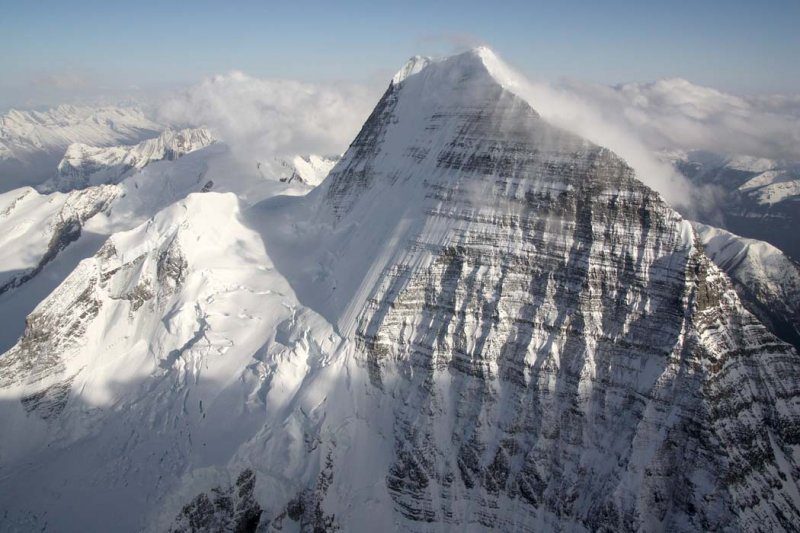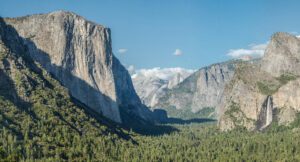Indigenous Mountain Names Should be Used, Not Colonial Ones
"I think that any name that was known to be used by Indigenous people in the past trumps a colonialist name" - Colin Haley

Another 751 unmarked graves have been found at the site of a former residential school in Saskatchewan, Cowessess First Nation says. It’s being called a crime against humanity, and a genocide on treaty land. The illegal act of removing the headstones to the graves was done in 1960 by the Catholic church.
This comes on the heels of 215 graves being found at the site of Kamloops Indian Residential School less than a month ago.
The Marieval Indian Residential School in Saskatchewan operated from 1899 to 1997. Chief Cadmus Delorme says finding the names of the people buried is the next priority. He said that Canada can move quicker, but has made progress, and that the pope needs to apologize. He also said that Cowessess needs to decolonize, and hopes that when his children grow up that they’ll have reconciliation.
Elder Florence Sparvier of the Cowesses First Nation said, “They made us feel like we didn’t have souls,” and that “we were heathens.” She spoke at a news conference on June 24 where the recent findings in Saskatchewan was released. The conference lasted for over an hour.
Over the past year, a number of racist, sexist and offensive climbing route names have been changed. At least one mountain name, found in Canmore and now called Bald Eagle Peak, has also been changed from its previous racist name. Elder Una Wesley was one of the many speakers at the ceremony. Wesley (White Bison Woman) grew up in a residential school starting at age seven.
The renaming of mountains is a more complicated process than changing route names because it has to go through official channels, but climbers have been referring to famous peaks by their Indigenous names for years.
Alpinist Colin Haley wrote about mountain names in 2015: “Many people who know me are aware of my preference for Indigenous mountain names in favor of colonialist names. Of course things are not perfect – Often the knowledge of Indigenous names has become lost or muddled by lack of written history, and often the same mountain was referred to by different names by different tribes. Nonetheless, I think that any name that was known to be used by Indigenous people in the past trumps a colonialist name that was applied hundreds of years later. This is especially true in North America, where many colonialist names have incredibly little relation to the mountain or area.”
Here’s a list of mountains with their Indigenous and colonial names: Sultana (Mount Foraker), Begguya (Mount Hunter), Tahoma (Mount Rainier), Dakobed (Glacier Peak), Wy’east (Mount Hood), Pahto (Mount Adams), Nch’kay (Mount Garibaldi), Yuh-hai-has-kun (Mount Robson) and Cerro Chaltén (Cerro Fitz Roy). Consider incorporating their Indigenous names into conversations and trip reports.
Top climber Nina Williams wrote about changing route names, saying: “Proposal: Language management of route names. Distinguish between immature/vulgar/crude names and racist/sexist/ableist/homophobic/transphobic/ethnocentric/anti-Semitic names. Keep the vulgar names and toss the names that are historically violent and exclusive against entire communities of people. How do we draw that line? Imperfectly. But it must be drawn.”
Kevin McLane, a prolific author based in Squamish, told me that climbers against offensive route names dates back to when he first started climbing over 50 years ago. Some suggested route names had already been changed many years ago, a process that needs to continue. As Williams said, the line between what routes should be renamed is blurry, but if we work on it as a community, then a mostly-accepted outcome can be reached.
In 2019, Canadian climber and writer Bonnie de Bruijn wrote a piece called ‘Controversy Over Sexist Route Names: Really?’ after the conversation started online that we need to rename routes with sexist names. In it, she wrote: “One of the coolest things about rock climbing that I noticed when I started as a teen was how it provided a space and a community for people who may not have fit in elsewhere. All that mattered was the passion and obsession with climbing. It was a kind of inclusivity before inclusivity was a thing. That is a part of climbing’s heritage we should aim to preserve and promote.”
In the February/March 2021 issue, Michelle Leblanc wrote in Offensive route names and how language in climbing culture can be hurtful, “Without sounding too hyper-sensitive, I think that individual comfort is a subjective term that is defined by the ability to be authentic in whom you really are while having the opportunity to do so. If you are constantly fighting back against terms that you hate – that hate can be internalized and cause damage to your own self-worth.”
There are a lot of reasons why we should change colonial mountain names, like Mount MacDonald, Mount Sir Donald, Mount Rundle, Mount Temple, back to their Indigenous names or to a non-colonial one. A number of schools across Canada are changing their colonial names this year, so, why can’t we do the same in the mountain world?
Below are two clips, which have nothing to do with climbing, but the mountains belong to everyone and not just climbers, which might help you understand why we have to stop the “ball from rolling,” otherwise we’re continuing the legacy of the colonists whose oppressions we’re so against.
@jaseroe8 #duet with @jolly_good_ginger #Realtalk #Allie #stillhere #generationaltrauma #priviliege
@jolly_good_ginger Don’t take your foot off their throat @modern_warrior__ , I stand with you.


